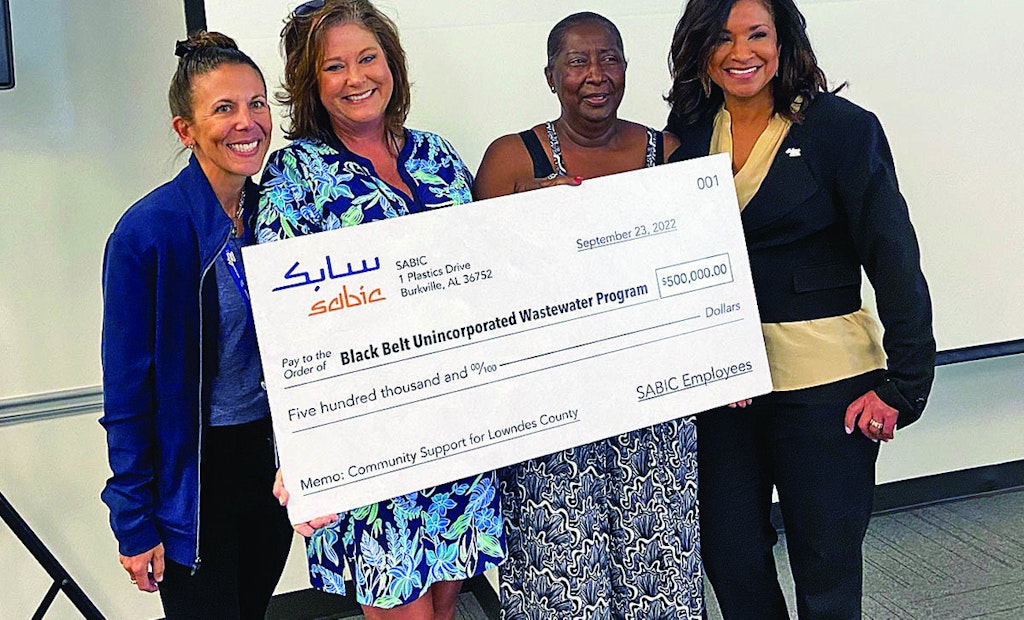
Representatives of SABIC, Inc., far left and right, present a $500,000 check to Lee Salter, of the state health department, and Perman Hardy, president of the Black Belt Unincorporated Wastewater Program. (Photo courtesy of BBUWP)
Five years ago, I introduced you to a few determined folks in South Central Alabama who recognized an abundance of failed septic systems — or homes without septic systems at all, just a straight pipe that dumped waste in the backyard — and wanted to do something about it.
These...





